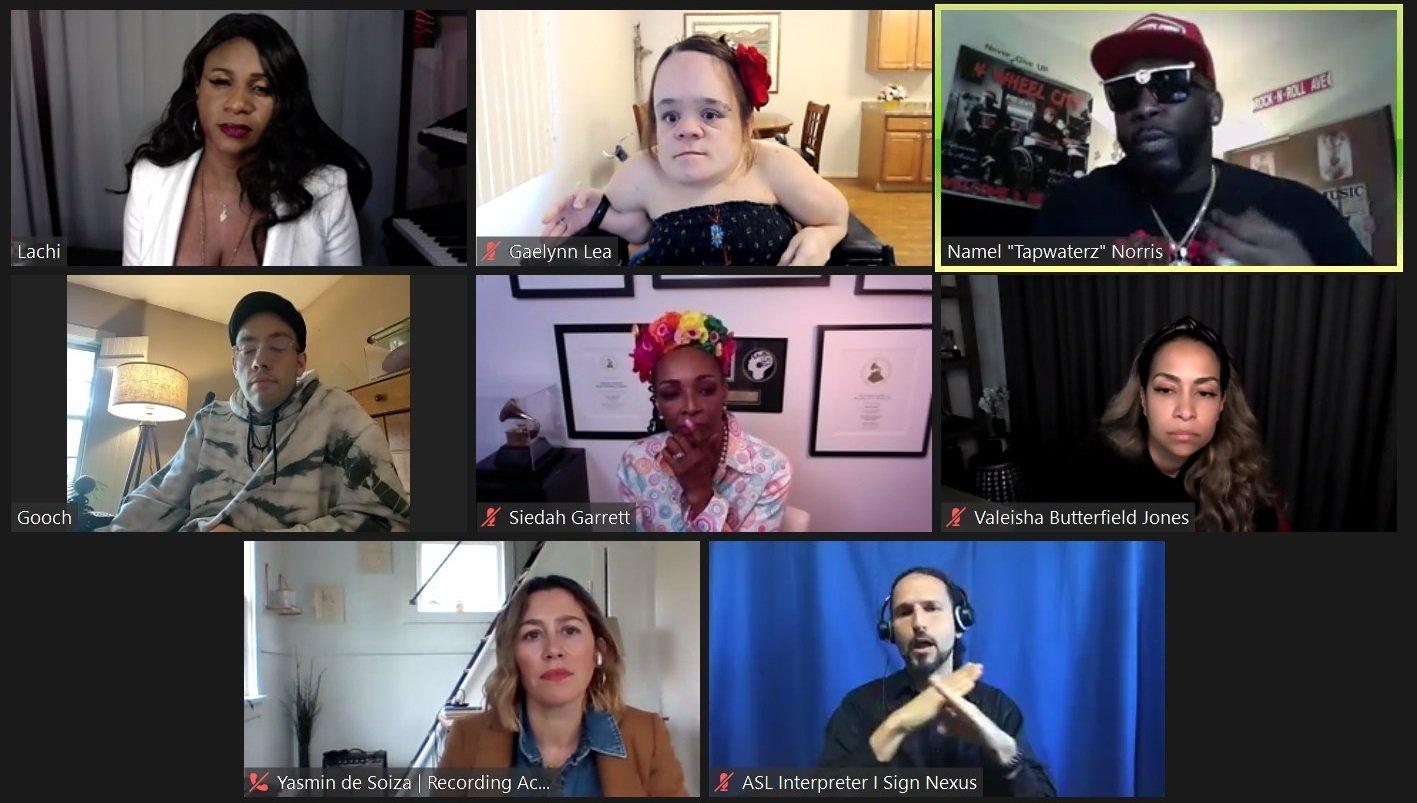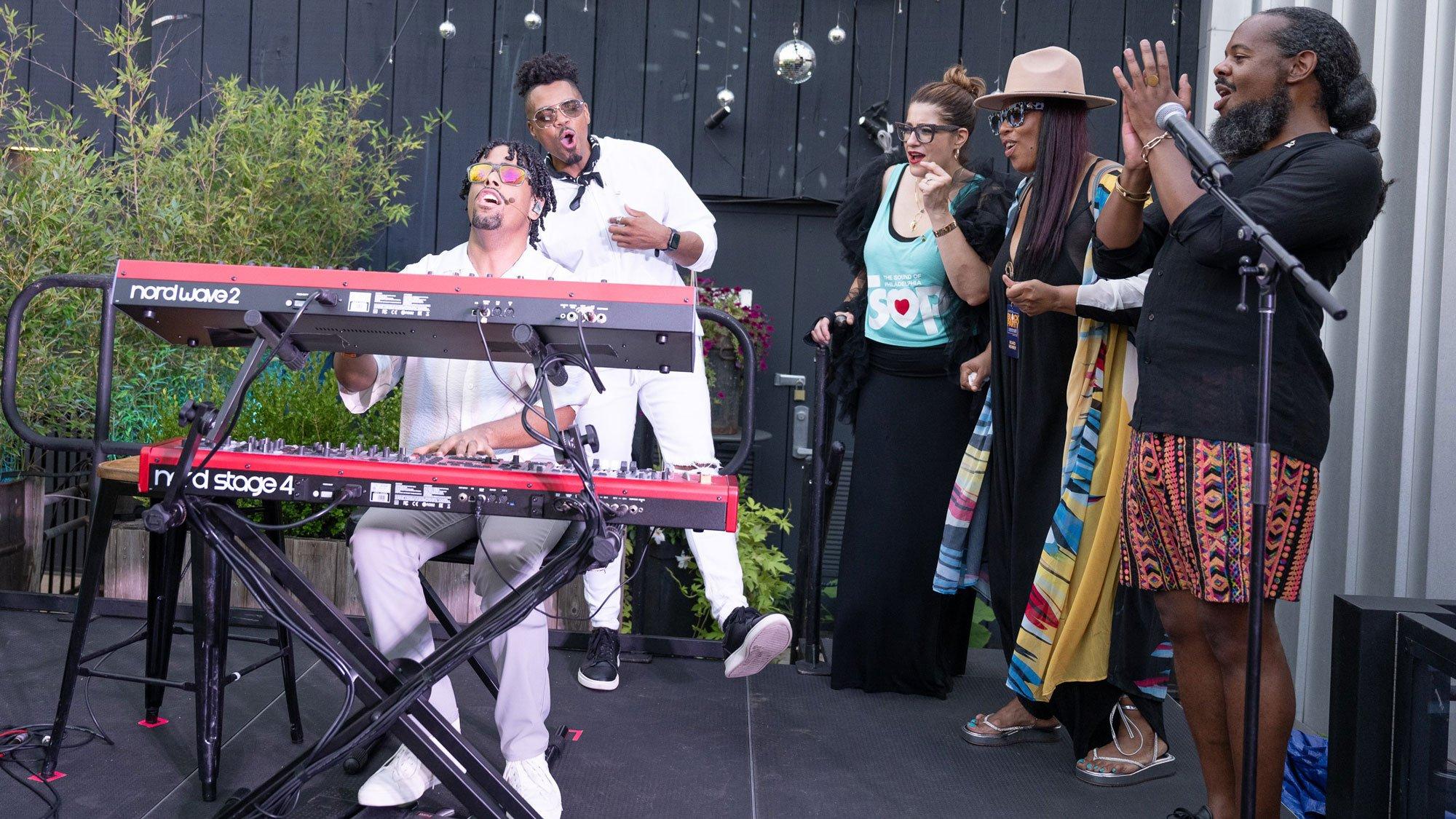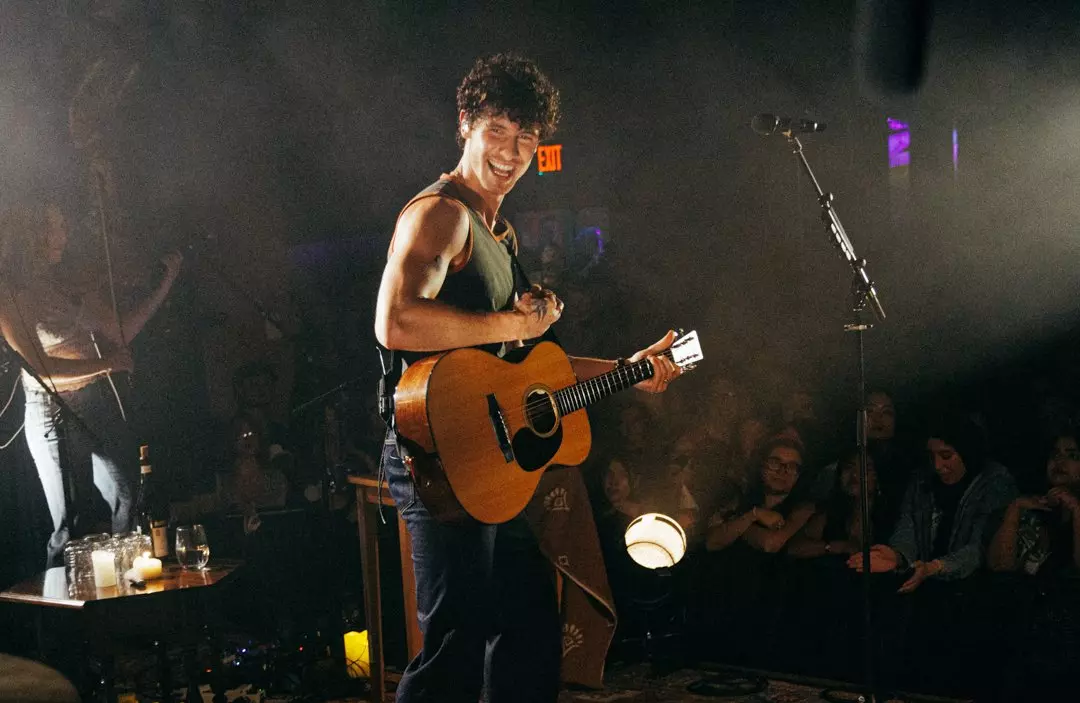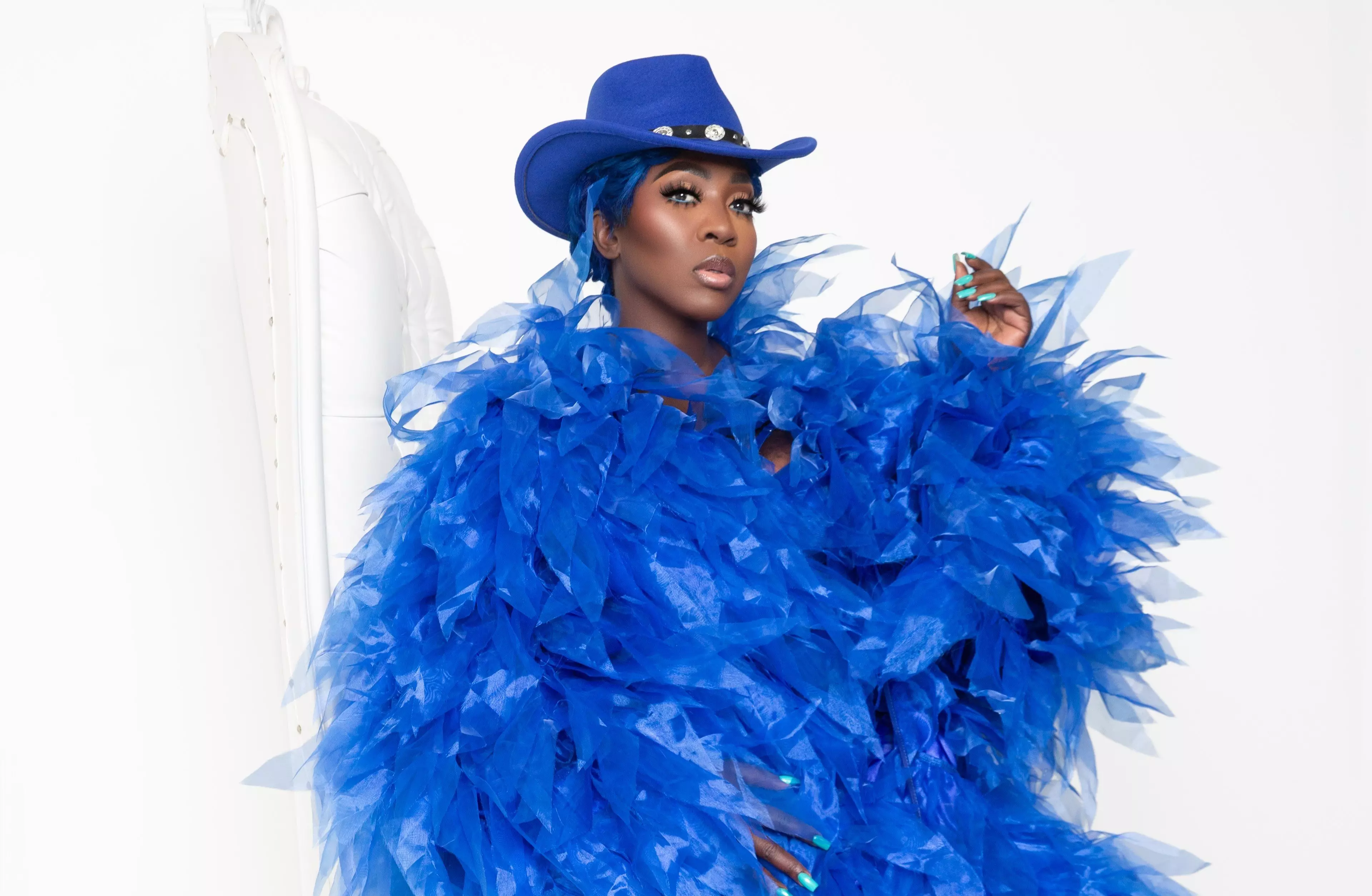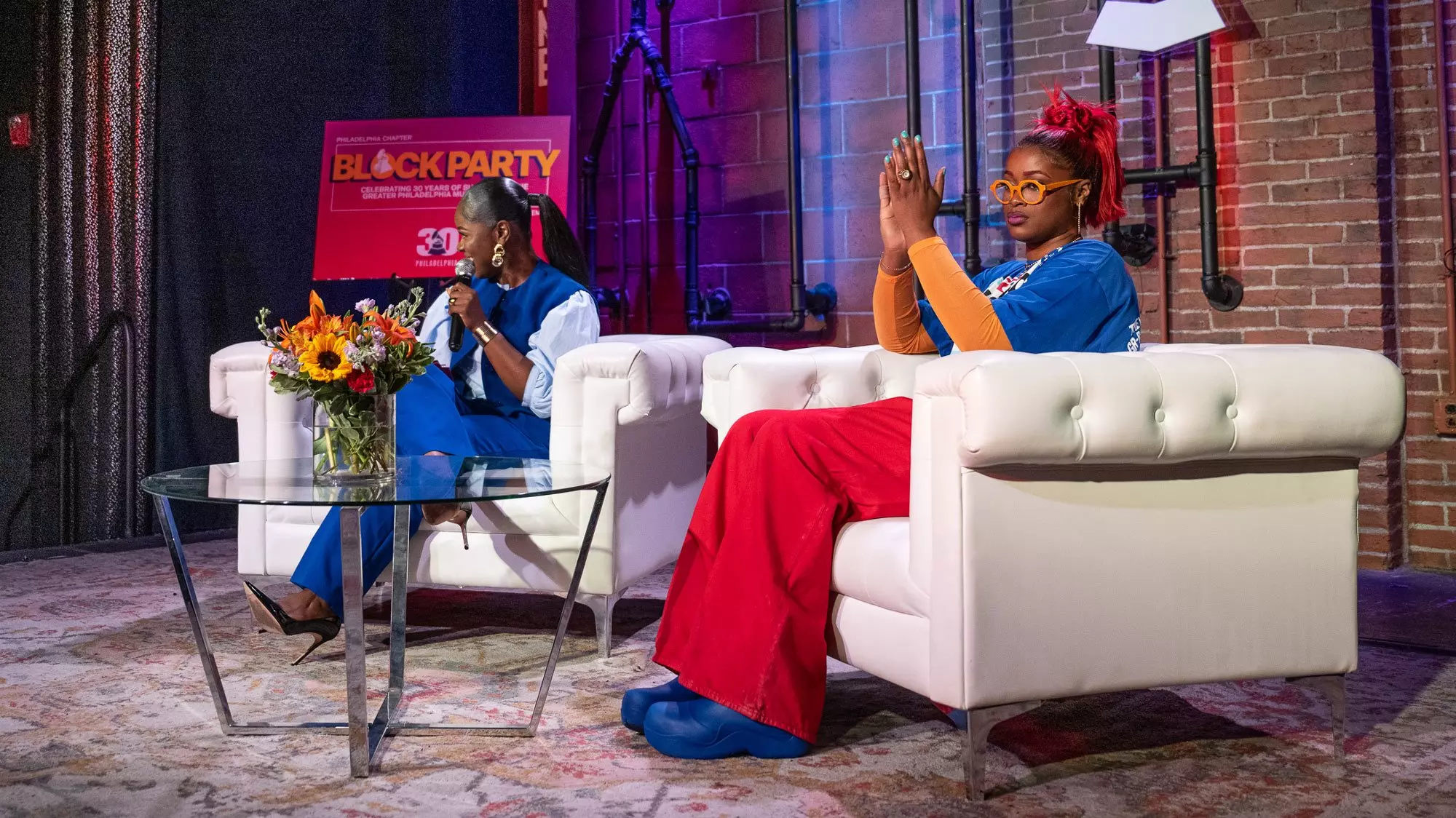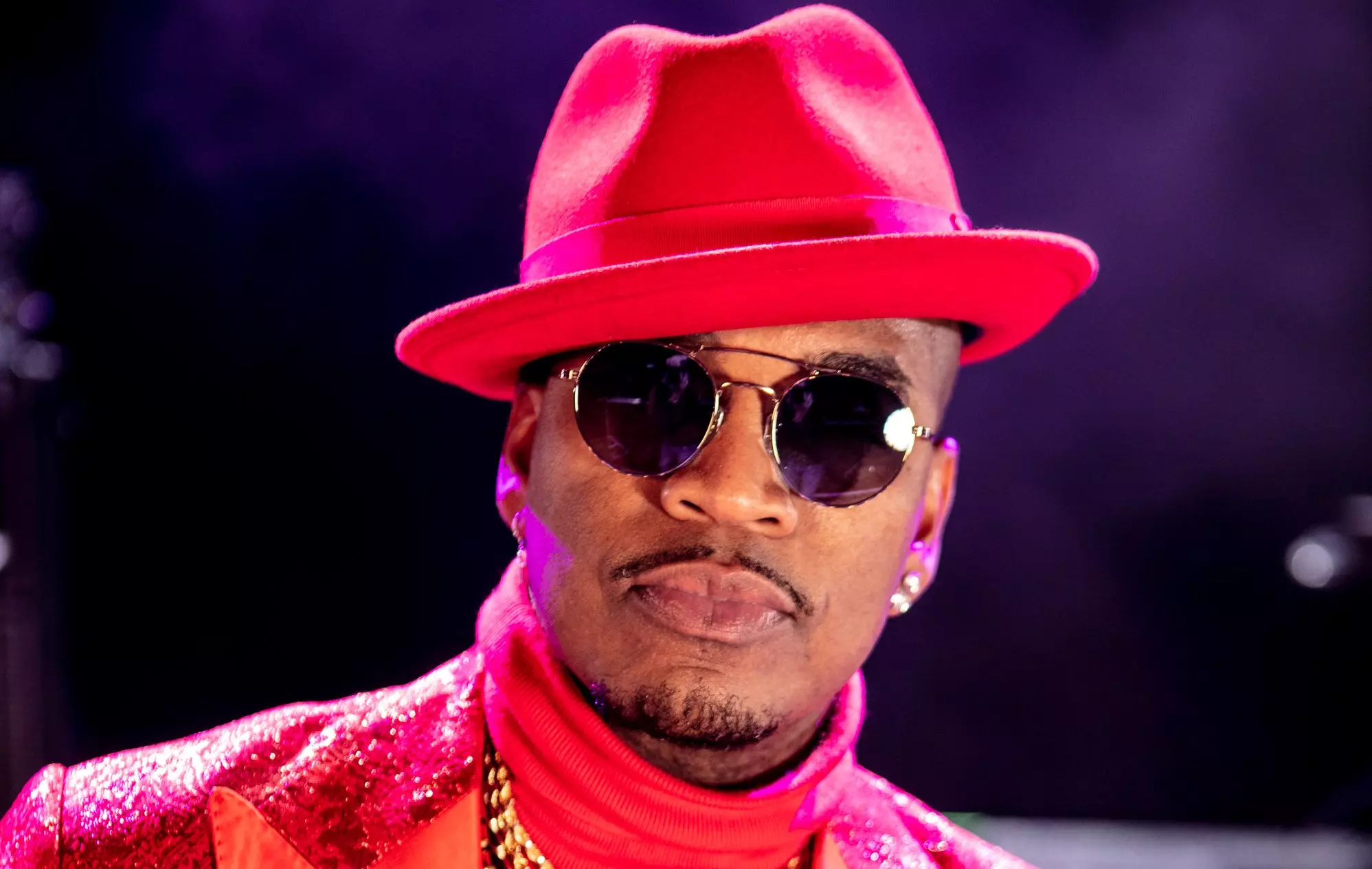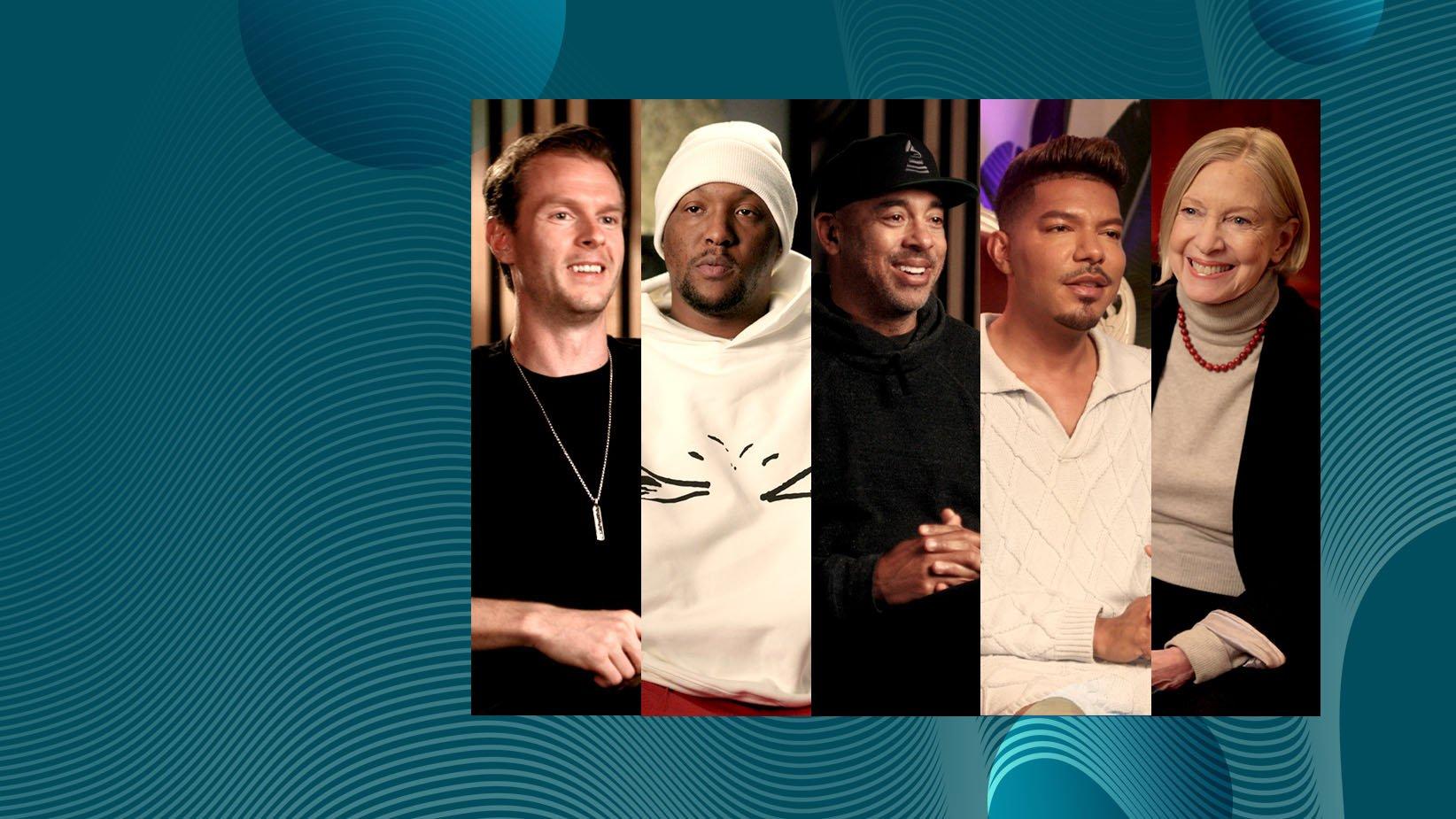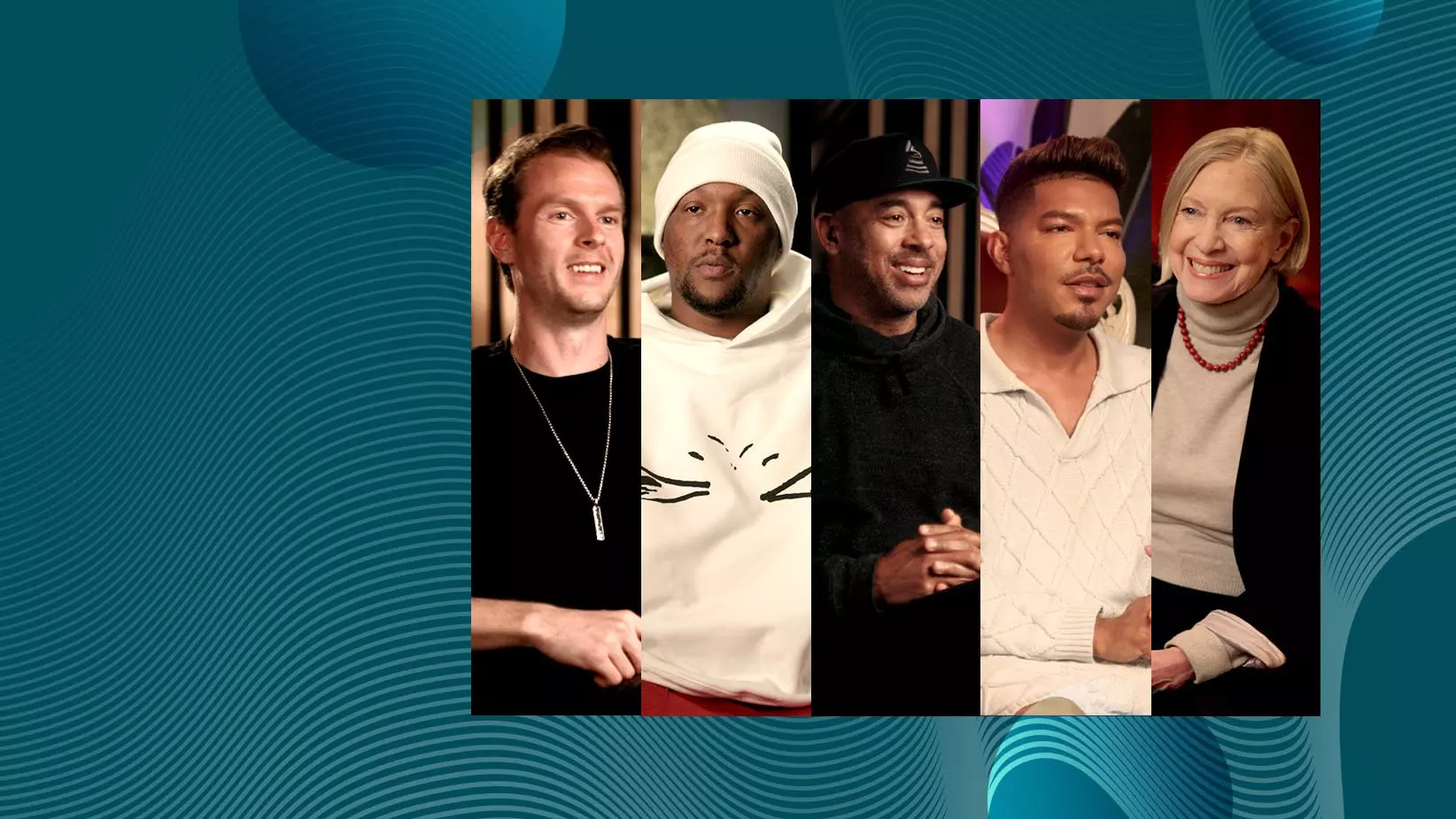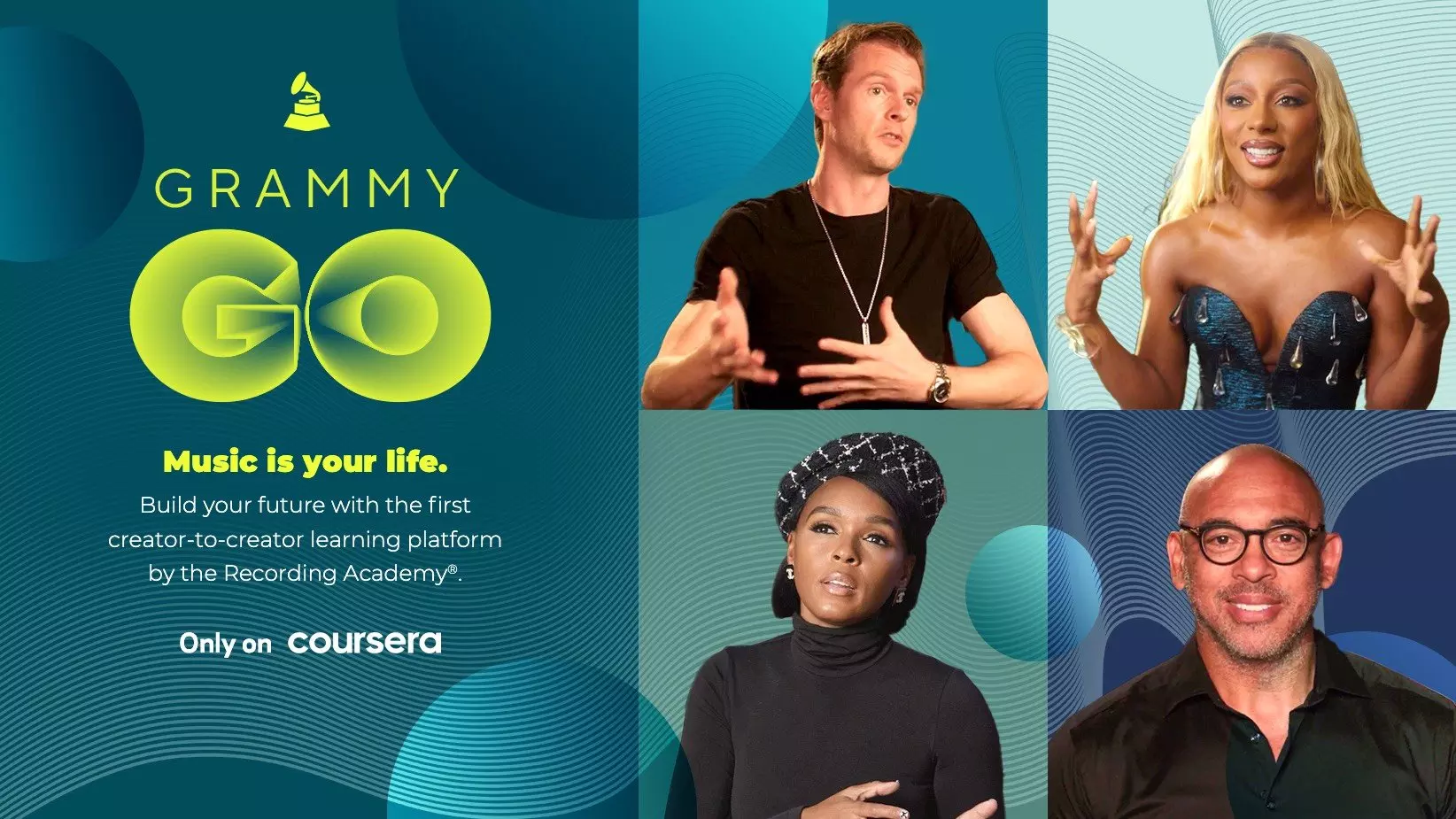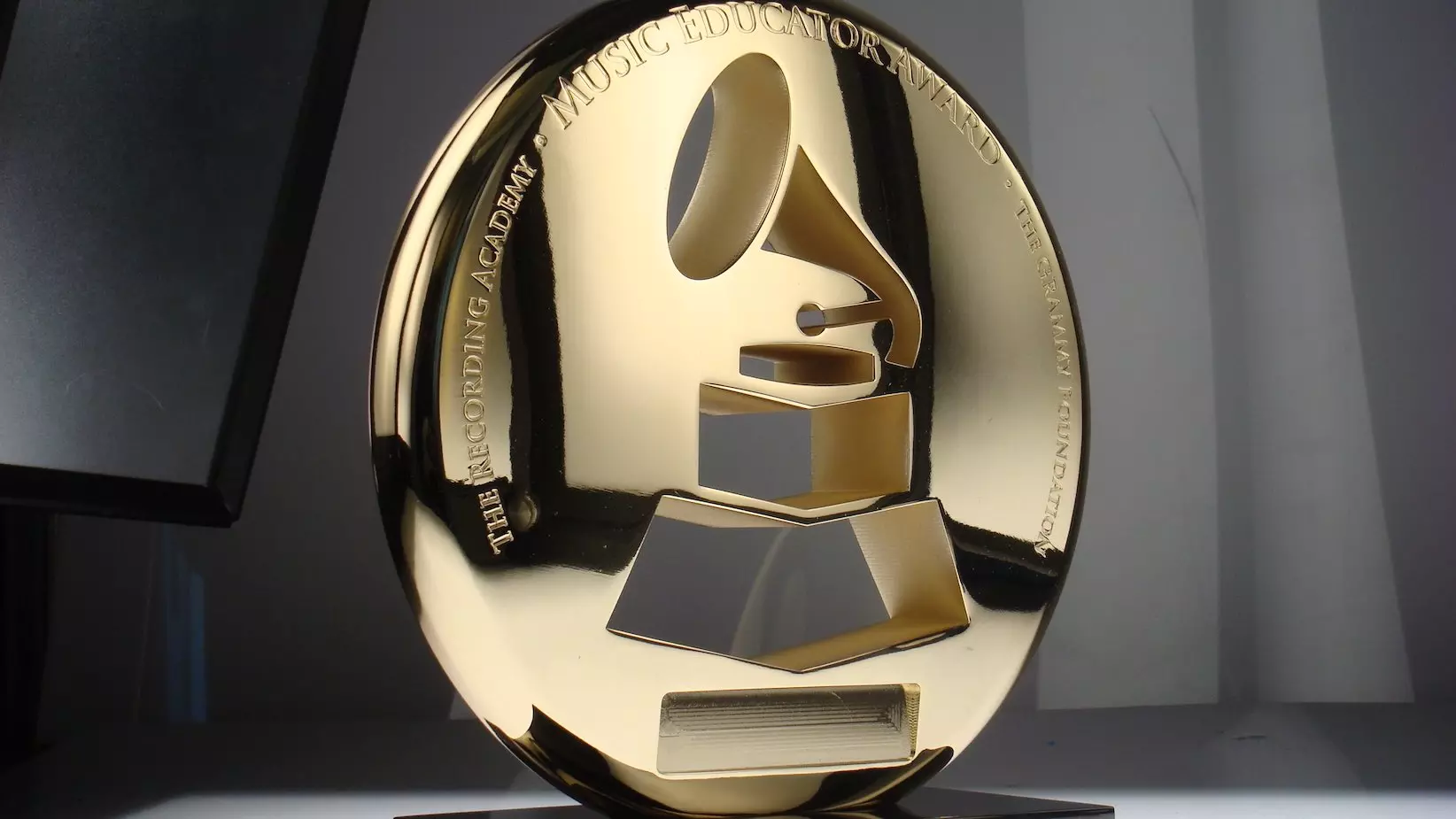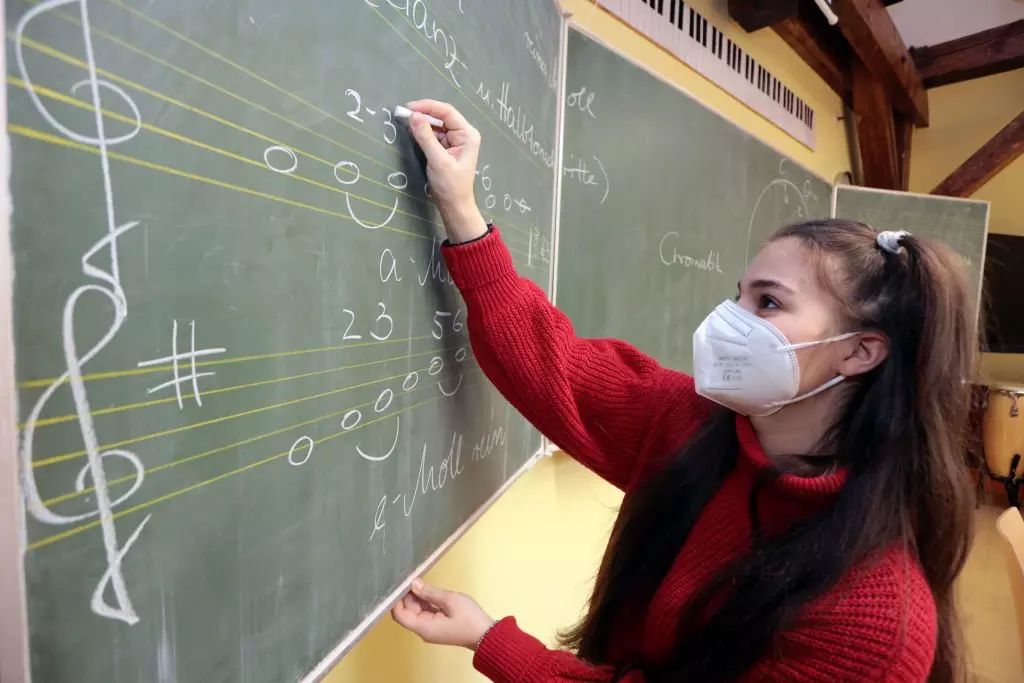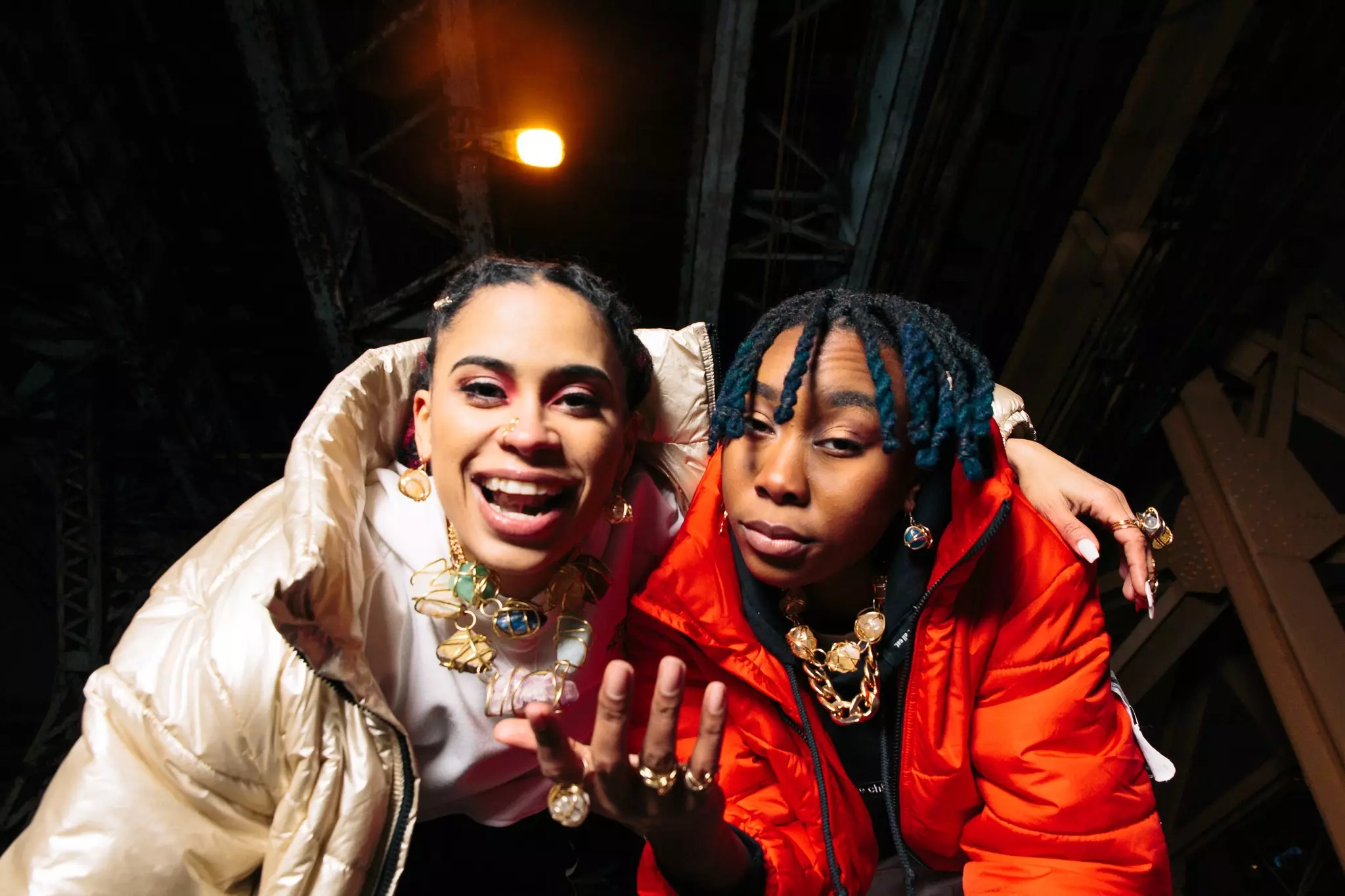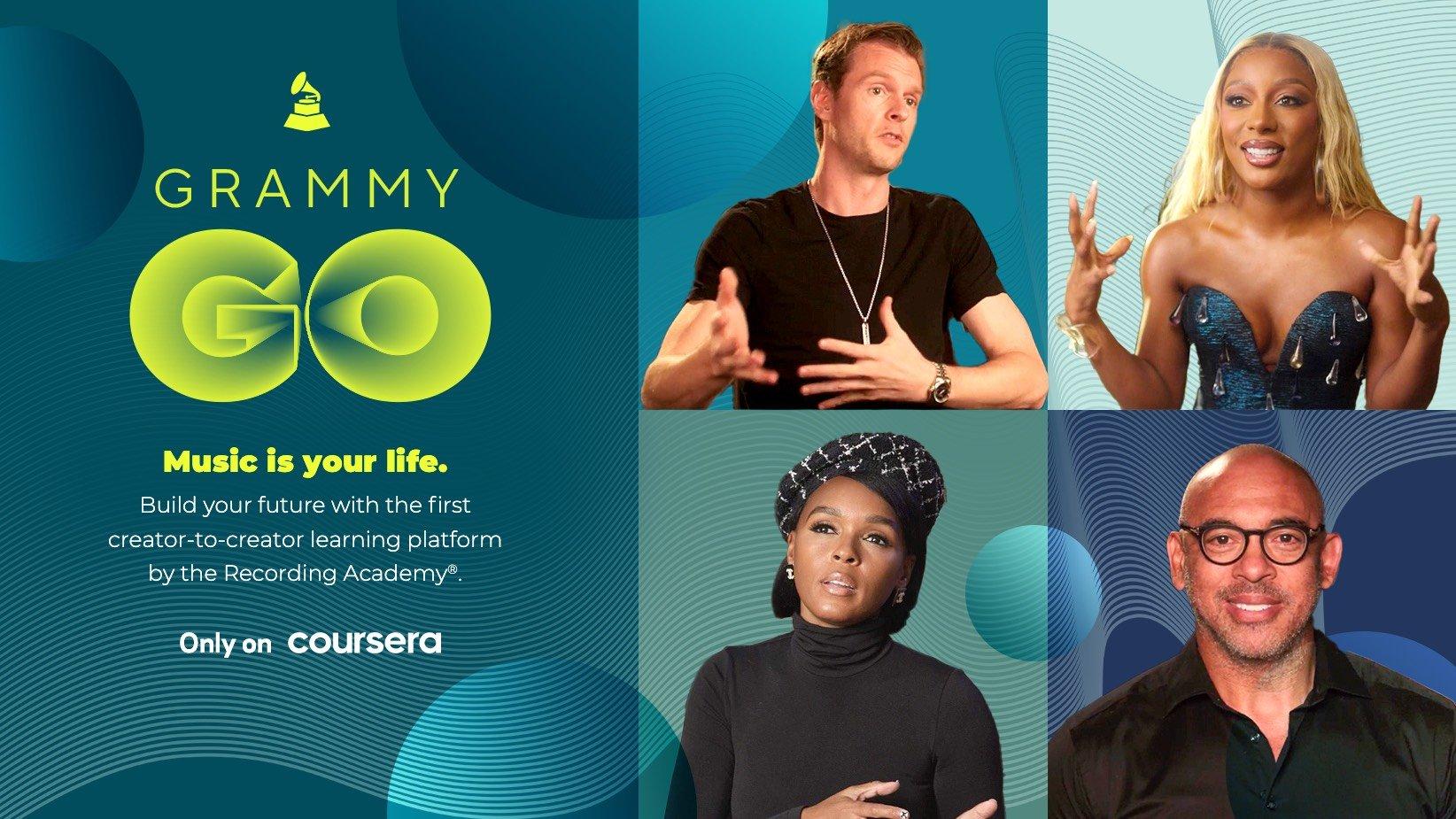Fitting perfectly with April's "Celebrate Diversity Month" theme, last month, the Recording Academy's New York chapter hosted Music, Purpose + Community: Highlighting Creators Working to Close Accessibility Gaps On and Off the Stage, an hour-long panel highlighting the challenges musicians with disabilities face on a regular basis as well as the urgent necessity to close the accessibility gap. The panel, which marked the Recording Academy's inaugural event focusing on accessibility, implemented accessibility features like live interpretation and transcription services, also a first for the organization.
Moderated by recording artist, songwriter and disability inclusion advocate Lachi, the panel comprised violinist/songwriter and NPR Music's 2016 Tiny Desk Concert Contest winner Gaelynn Lea, GRAMMY winner and two-time Oscar-nominated songwriter Siedah Garrett, singer/slide guitarist Ryan "Gooch" Nelson, hip-hop artist and motivational speaker Namel "Tapwaterz" Norris and the Recording Academy's Chief Diversity & Inclusion Officer Valeisha Butterfield Jones.
The event examined the challenges musicians with disabilities face in the music industry, including stigma, lack of opportunities and inaccessible venues.
<style>.embed-container { position: relative; padding-bottom: 56.25%; height: 0; overflow: hidden; max-width: 100%; } .embed-container iframe, .embed-container object, .embed-container embed { position: absolute; top: 0; left: 0; width: 100%; height: 100%; }</style><div class='embed-container'><iframe src='https://www.youtube.com/embed//kZ0YZKoroBo' frameborder='0' allowfullscreen></iframe></div>
Lachi, who is legally blind, opened the program discussing her desire to become the very role model she lacked when she was growing up. "I grew up as a blind kid, and I was passionate about music and entertainment, but I didn't have a lot of folks who looked like me and had my situation," she said. "It made it really difficult for me to have an 'I want to be that' type of goal, to find identity, especially in music specifically … I want to be the role model that the industry hasn't seen in folks with disabilities. I want the industry to foster and promote such role models because the next generation absolutely deserves it."
Garrett, who was diagnosed with multiple sclerosis (MS) seven years ago, talked about how she moved past her fear of disclosing her illness and potentially losing opportunities. Similar to Lachi, Garrett wanted to inspire. "When I was first diagnosed, I was so afraid I didn't tell anyone for a long time, not my friends, not my family, and especially not my peers," she said. "I didn't want to be looked at as someone who was disabled because there's an automatic analogy of who you are and what you can do, and if they don't want to be bothered with your accommodations, then you don't get called for that gig or considered. So I didn't want to let anyone know I had an issue, but I decided if I was quiet, then no one would know my story and I wouldn't inspire anybody because I was hiding," she said.
Lea, who was born with osteogenesis imperfecta (OI), a congenital disability, spoke candidly about the challenges she's faced in a wheelchair due to the ubiquitousness of venue inaccessibility. "The places I can play are extremely limited. This is a huge issue that a place like the Recording Academy really can be taking the lead [on], because the reality is, with so many venues, I can't get in the door, I can't use the bathroom, I can't get to the room where the stage is, and that's just if I want to attend a show," she said.
"If I want to perform at a show, a lot of the time, I can't access the stage because there's no ramp. The green room is not even on my radar right now because it's so difficult to find the basic accessibility requirements … So the reality is, the barrier to entry is so high right now. It's a really urgent problem."
Nelson, who became quadriplegic after an accident toward the end of high school, relearned how to play guitar with paralyzed hands. He echoed Lea's experiences, relaying an anecdote about a live show years ago. "I travel around in a power wheelchair, so it's big, it's heavy, it's hard to get on stage," he said. "I remember back when I first started out, I went and saw Robert Randolph play. And he jumped off stage, and he invited me up to play with him, but there was no ramp to get on stage. And so he and his bandmates tried to lift me up onto the stage, almost dropped me and ended up sitting on the ground in front of the stage, and they ran a guitar cable out to me."
Norris co-founded 4 Wheel City, a hip-hip duo and movement, with Ricardo "Rickfire" Velasquez. Norris became paraplegic when his cousin accidentally shot him, and Velasquez developed paraplegia after being hit in the street by a stray bullet. The pair created 4 Wheel City to inspire change, create more opportunities for people with disabilities and encourage at-risk youth to stay away from gun violence.
Norris said when he was first in a wheelchair, he thought he couldn't rap anymore "because hip-hip is very masculine and everything," he said. But taking a cue from Stevie Wonder, Norris decided to keep playing music. He started to wonder why no one was talking about disability and made a pact to become "unapologetically disabled," promising to break down barriers.
Butterfield Jones cited a statistic from the Harvard Business Review, which noted that while 90 percent of companies say they prioritize diversity, equity and inclusion, only four percent of them consider disability to be a priority. "We have the power to change that and do that now in the music industry," she said. "Not only am I committed to doing the work we need to do for creators with disabilities at the Recording Academy, but let's roll up our sleeves and lock arms with the [record] labels and touring companies and digital streaming services to also make sure we're doing this together."
To recap the informative conversation, here are four key takeaways from the Recording Academy's Music, Purpose + Community panel.
Screenshot from the Recording Academy New York chapter's Music, Purpose + Community: Highlighting Creators Working to Close Accessibility Gaps On and Off the Stage panel
Disability needs to be included in diversity
Gaelynn Lea: "It's so important to talk about disability as a form of diversity. I was born with a disability. You could not separate me out from my disability. It's always been the way I see the world ... If we don't start talking about it as something that is part of our identity, as something that requires support and compassion the way that any other identity does race, gender, your sexual preference—all of these things are part of diversity. And when you treat disability that way, you can start to see that it makes the world more welcoming, more diverse, better idea exchanges, and we can take away the stigma so that it will be more obvious that it's being left out … it's an acceptable part of our culture that should be supported instead of ignored, the way we support all other minorities."
Siedah Garrett: "I think the reason why employers don't really consider hiring people with disabilities is because they just don't want to take the extra effort that it will take to accommodate someone or people with disabilities. They don't even want to acknowledge it because then that would be proof, that would be evidence of their discrimination, so they just ignore it.
Namel "Tapwaterz" Norris: "l feel like I have two brains, that brain [before Norris was in a wheelchair] and being in the wheelchair, which is my disability brain. I thought about it, and I don't recall ever thinking of someone with a disability before. I don't remember thinking about what they are going through, what they might need, or what their day-to-day is like. So I feel like that's what happened if you think about the word 'disability.' You're already coming in the door with somebody thinking you can't do something because of the word itself, so you lose the value to somebody. I think what happens is that they don't even include us in the thought process, let alone just the idea of us because we're so conditioned to overlook people with disabilities because of the word."
For disability to be a fundamental part of the conversation, mainstream media and entertainment must embrace and include a multitude of musicians with disabilities
Lachi: "Anyone who is in tune with the disability community knows that one of the most difficult things is to get it out from the echo chamber and out to the mainstream. That's really the help that is needed. It's not a pat on the back that we need. It's not like, 'Oh, you're so inspirational. Thank you so much for inspiring me to roll out of my bed and continue living my life,' and not doing anything to help the disability movement. What we need are folks to help us get the message out to the mainstream."
Society needs to demand that venues are accessible to disabled musicians and audiences
Gaelyn: "I stopped playing inaccessible venues a couple of years ago. If a venue is accessible, but they don't have a ramp to the stage, I don't let them lift my wheelchair up anymore. I say, 'I'm just going to play on the floor then,' because it sends a very obvious message to the audience that I'm not on the stage because I can't get up there. I've seen positive change, people building ramps for me, renting ramps when I drew a line in the sand and said, 'Enough is enough. I think the more artists, disabled or nondisabled, who are willing to make these same stances, and especially with the backing of something like the Recording Academy, [it] would be very powerful and lead to a lot faster change."
Ryan "Gooch" Nelson: "It really blew my mind what Gaelyn said because I've been to so many gigs where they weren't accessible, and I found a way or went up a ramp, which was kind of shady when probably what I should have done was just make a choice to stay in front of the stage and send that signal that this place is not accessible. Therefore, your show is not going to be as good if you come here … Once we all start getting together and we find a way to show them where we spend our money.
I feel like we need to flip it on ourselves a little bit, too, and take some responsibility. A lot of disabled people stay home. They don't go out, so it's like that thing where the venue might not be catering to them, but they don't really want to go out either. So we have to, ourselves, kind of combine our efforts and our money and make our dollars speak and show that we show up to accessible venues that cater to everybody, that are inclusive, that you can see have thought of everybody's disability and are including everyone. And if we all start pooling together and spending our money at venues like that, I think you'll see other venues starting to change their ways."
Discriminating against musicians who have a disability is a civil rights issue
Gaelynn: "This law, the Americans with Disabilities Act, which applies to for-profit private venues, hasn't been adhered to in 30 years. It's a 30-year-old law. It's a civil rights law, not just a money-financing law. It's really about, 'Do we value equality in music or don't we.' If we do, we have to stop supporting the places that are shirking their duty to the law."

